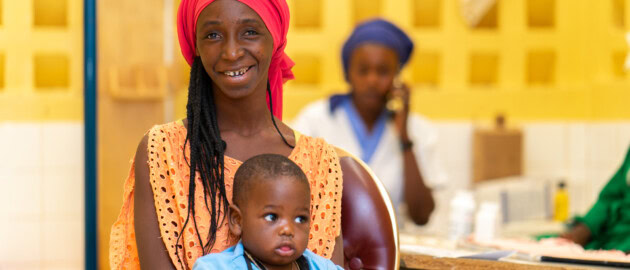Through programs and interventions that specifically target women, adolescent girls, and pregnant women, we help ensure they have access to improved nutrition.
Some of the interventions that reach women and girls include:
- Iron and folic acid supplementation for pregnant women
- Nutrition education and weekly iron and folic acid supplementation for adolescent girls
- Food fortification and salt iodization, which reach all populations with critical micronutrients like iron and iodine
Our Program Gender Equality Strategy ensures that all our programs promote gender equality, women’s empowerment and improved nutrition.
Grounded in the United Nation’s Sustainable Development Goals, the World Health Assembly Global Nutrition Targets, and global efforts to promote gender equality, we seek to address gender barriers at all levels of the socio-ecological model by:
- Supporting gender responsive policy and strategy formulation, guidelines development and planning through technical assistance
- Integrating gender into multiple sectors, national nutrition programs, plans, and social safety net programs to address social norms and gender barriers
- Ensuring the health system and other systems delivering nutrition services are working for women and girls, and not reinforcing structural inequities
- Establishing women’s and youth empowerment groups and school clubs to promote and disseminate messages about gender equality through peer-to-peer approaches to increase women’s agency and knowledge of their rights
- Developing strategies to engage men and boys through targeted behaviour change communications
- Mobilizing key stakeholders’ involvement to ensure gender equity and create an enabling environment
- Partnering with women-led and women’s rights organizations to ground our work within local contexts




